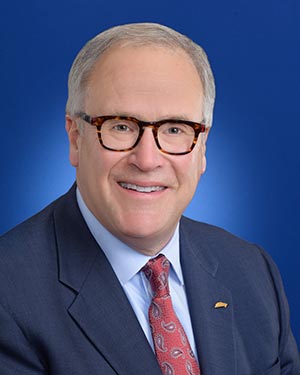Investing in China's health
By Zhuan Ti (China Daily) Updated: 2016-03-19 08:09
 |
|
Lilly's Corporate Center in Indianapolis.[Provided to China Daily] |
The US-based global pharmaceutical Eli Lilly and Co has vowed to launch more new drugs in the coming years through intensified investment in research and development and consistent innovation.
In 2015, Lilly saw revenue grow after experiencing a hard time after 2009 when the patents of several of its blockbuster drugs expired. Its total revenue last year was $19.96 billion, a 2 percent growth year-on-year.
 |
|
John Lechleiter, CEO of Lilly.[Provided to China Daily] |
"The 2015 results reinforce our confidence in the future, as we anticipate regulatory approvals for a number of new medicines, and we have promising clinical trial data for potential new medicines in development," Lechleiter said.
Innovative drugs
Lechleiter noted that the company is targeting continuous revenue growth in 2016, while sustaining a flow of innovative medicines through its pipeline.
Lilly's businesses focus on diabetes, cancers and biomedicines, including immunology, neurodegeneration and pain. So far, the company has already launched a complete portfolio of diabetes medicines, with a series of launches beginning in 2014.
According to the company, it is currently in the late-stage development of a potential treatment for severe hypoglycemia. Phase III testing of the ultra-rapid insulin is expected to start later this year.
Health figures showed that in China there are more than 100 million people living with Type II diabetes, and better care is urgently needed for this group of patients.
Lilly also plans to launch four new molecular entities for cancers within five years.
The company has already launched Cyramza for a number of diseases, including gastric cancer, in markets around the world, and Portrazza in the US for squamous non-small cell lung cancer.
In biomedicines, Lilly anticipates five new launches in the next five years, with the intention that each of them will be the best or first in its class, including some that modify the course of a disease, on top of improving the standard of care, Lechleiter said.
Regulatory reviews and new launches are planned in immunology and neurodegenerative diseases, including new drugs to treat psoriasis and rheumatoid arthritis, and two candidates for painkillers.
Making a difference
Despite China's slowed growth in recent years, Lechleiter expressed his confidence in the Chinese market.
"With the country's healthcare reform, more Chinese people are seeking better healthcare as the government provides additional coverage and provides subsidies for the population. That's good news for companies like Lilly, as more patients have access to our medicines," Lechleiter said.
















